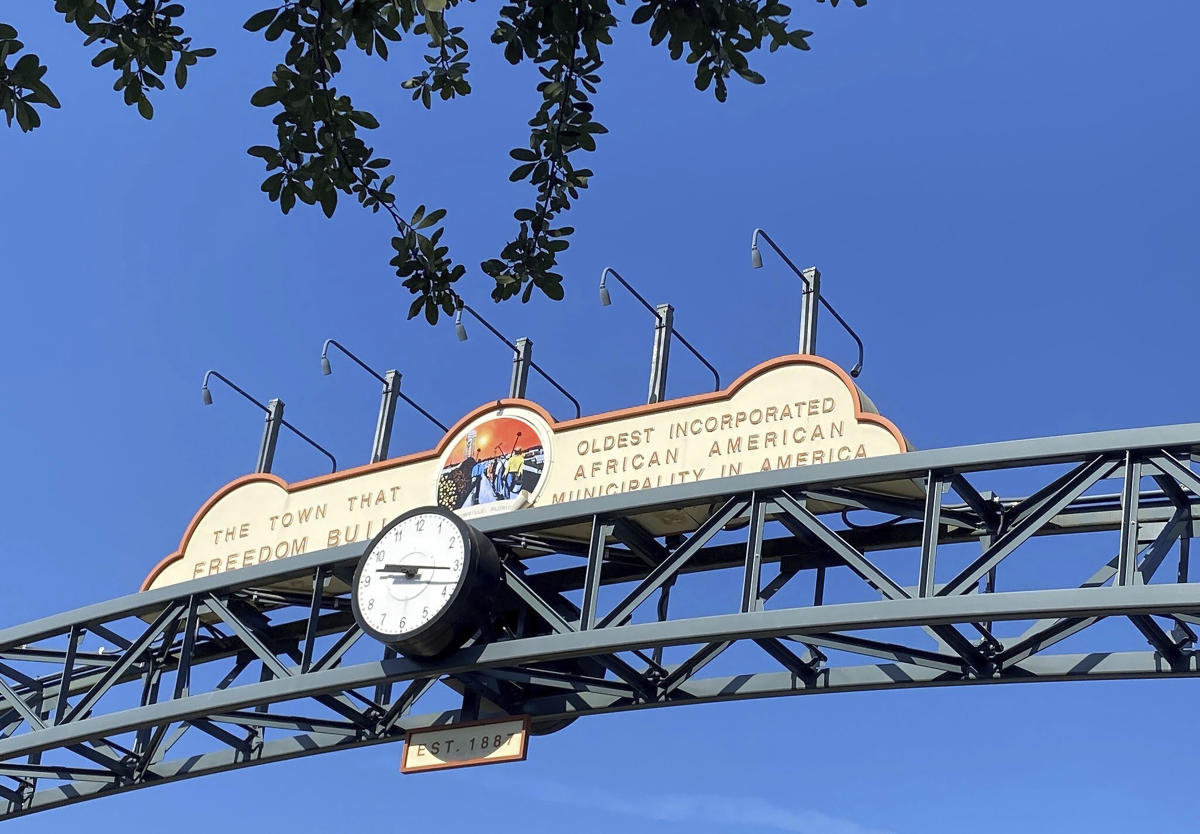ORLANDO, Fla. (AP) — One of the first historically black cities in the US is suing the local school board to stop land sales related to Florida’s legacy of racial segregation decades ago and the state’s rapid growth today.
An association dedicated to preserving the cultural history of the city of Eatonville sued the Orange County School Board last Friday in an attempt to stop the sale of the 100-acre property that once housed Robert Hungerford Preparatory High School.
The proposed sale of the school property for $14.6 million to a developer with plans to build 350 new new homes, along with business premises, threatens the city’s cultural heritage, the Association to Preserve the Eatonville Community said in its statement. court case. The sale closes on Friday.
With a population of about 2,350, nearly three-quarters of whom are black, the city outside of Orlando is perhaps best known through the writings of Harlem Renaissance writer Zora Neale Hurston. Eatonville was the setting for one of her most famous works, “Their Eyes Were Watching God.”
The association, along with other Eatonville residents, fear that the sale of the property in a centrally located part of burgeoning metro Orlando will increase traffic and the city’s longtime residents, many whose families have lived there for generations. , will pay out.
“If this sale goes through, the rich culture and heritage of the city that Zora Neale Hurston popularized around the world as ‘the first incorporated African American community in the United States,’ will be erased,” said NY Nathiri, executive director of the association, which is represented by the Southern Poverty Law Center.
The school board said in a statement that it could not comment on pending lawsuits.
Founded in 1887, Eatonville was one of the first all-black congregations to be established in the decades following the end of slavery in the US. and Settlement Alliance.
The Hungerford School was founded in 1897 for black children who faced an education system that separated them from white students. The Orange County School Board purchased the property from a trust in 1951 under a deed restriction that the school would continue to be used to educate black children. Even after the U.S. Supreme Court disbanded the nation’s schools in 1954, Orange County public schools remained segregated for many years.
The school board was able to sell part of the property in 1974 after a circuit court lifted the deed restriction on that piece of land. In the 2010s, the City of Eatonville, in conjunction with the school board, attempted to lift the deed restriction by suing the trust for release so that the remaining land could be sold for commercial purposes during a period when Orlando was one . of the fastest growing metros in the US
The parties reached several settlements over the decade, but the association’s lawsuit alleges they are void because they either failed to be approved by the court or did not have the co-operation of all required parties, including the Florida Attorney General who represents the public interest.
Last year, Eatonville residents elected a new mayor who opposes the proposed development. The trustees have no authority to lift the restriction on the deed, and any lifting of the restriction would, according to the lawsuit, either benefit the youth of Eatonville or be used for educational purposes.
___
Follow Mike Schneider on Twitter at @MikeSchneiderAP

